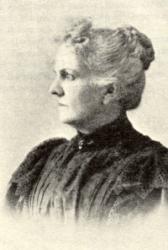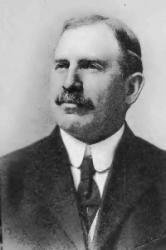Planning worship?
Check out our sister site, ZeteoSearch.org,
for 20+ additional resources related to your search.
- |
User Links
Search Results
[Now and forever]
Appears in 2 hymnals Composer and/or Arranger: H. H. McGranahan Incipit: 32315 21235 45311 Used With Text: Thine Would We Be
[Now and forever]
Thine Would We Be
Author: Laura E. Newell Appears in 2 hymnals First Line: Now and forever, Thine would we be Refrain First Line: Thro' all life's changes Thine would we be Used With Tune: [Now and forever, Thine would we be]
Thine Would We Be
Thine Would We Be
Author: Laura E. Newell Hymnal: Select Hymns and Psalms #157 (1914) First Line: Now and forever, Thine would we be Refrain First Line: Thro' all life's changes Thine would we be Languages: English Tune Title: [Now and forever, Thine would we be]
Thine Would We Be
Thine Would We Be
Author: Laura E. Newell Hymnal: Songs of Love and Praise No. 2 #147 (1895) First Line: Now and forever Refrain First Line: Thro' all life's changes Languages: English Tune Title: [Now and forever]
Thine Would We Be
Laura E. Newell

1854 - 1916 Author of "Thine Would We Be" in Select Hymns and Psalms Born: February 5, 1854, New Marlborough, Connecticut.
Died: October 13, 1916, Manhattan, Kansas.
Daughter of Mr. and Edward A. Pixley, but orphaned as an infant, Laura was adopted by her aunt, then Mrs. Hiram Mabie, who at the time lived in New York. In 1858, the Mabie family moved to a farm south of where Wamego, Kansas, now stands. Two years after the move, Mr. Mabie died, and his wife resumed teaching.
In 1860, Mrs. Mabie accepted a position in Topeka, Kansas, where she taught many years. Under her tutelage, Laura received her education. As early as age 12, Laura was writing rhymes, and two years later her poems began to appear in local newspapers. She had no thought of a literary career; she simply wrote to give vent to her poetical mind.
In 1871, Laura married Lauren Newell, a carpenter from Manhattan, Kansas. They had at least six children, and belonged to the Congregational denomination.
In 1873, Laura was listening to an address by a speaker who lamented the death of "genuine" hymns, and she resolved to try her hand in that line of work. That began a long period of writing songs, sacred and secular, services for all anniversary occasions, cantatas, adapting words to music, and music to words.
"Mrs. Newell is indeed a prolific writer. Her poems number in the thousands. She has had over eight hundred poems published in a single year, a most remarkable record. The great ease with which Mrs. Newell writes is one of her special gifts. Not long since an order, accompanied by music and titles, was sent her for eight poems to suit. At seven o’clock in the evening she sat down to her organ to catch the music. Then she went to her desk, and at ten o’clock the order was ready for the return mail. Her work pleased the publisher so well that he sent her an order for forty-eight additional poems. Mrs. Newell writes several hundred poems annually.
She is a very modest and unpretentious lady, and goes about her daily work as cheerfully as her poems advise others to do. The deeply religious character of the woman stands out boldly in nearly all her work. The next world is apparently as real to her as the present. Her heart is in her work, and to the end of life’s chapter, while able, may she wield her pen to tell the Story to dear to her heart, in verse and song." Hall, pp. 316-17
http://www.hymntime.com/tch/bio/n/e/w/newell_lep.htm
Laura E. Newell
H. H. McGranahan

1854 - 1931 Composer of "[Now and forever, Thine would we be]" in Select Hymns and Psalms Hugh Henry McGranahan USA 1854-1931. Born at Jamestown, PA, nephew of James McGranahan, gospel hymnist, he studied music under hymnists, George Root, and Horatio Palmer, and at the New England Conservatory of Music in Boston, MA. He married Grace McKinley, and they had two sons: Joseph and James. He became an editor and author. His most widely held publications include: “The juvenile class and concert” (1882,1895), “The choral class book” (1898), “Hymn and Psalm selections compiled” (1914), “Glad praises” (1914), and “Select temperance songs, new and old” (1915). He began his career directing musical institute conventions and later had charge of church choral unions in New York, NY, and Philadelphia, PA. He also headed the music department at Moody Bible Institute in Chicago, IL, for five years. After leaving the music field for health reasons, he entered the insurance business in Pittsburgh, PA, where he directed music in the educational department of the Bellefield Presbyterian Church. In 1880 he taught music in South Shenango, PA. In 1914 he was back in Jamestown, PA, where he later died.
John Perry
H. H. McGranahan


 My Starred Hymns
My Starred Hymns

